|
|||
A unified theory for aerodynamic and condensation shock waves in vapour-droplet flows in the presence of an inert carrier gas is presented. Same conservation equations apply across discontinuous models for both types of wave. Exact (as well as approximate), explicit analytical jump conditions across such discontinuities are derived subject to several boundary conditions. Collectively they may be called the generalized Rankine-Hugoniot equations for vapour-droplet mixtures. All the equations derived are general and can be applied in the case of a pure vapour-droplet flow by letting the mass fraction of the carrier gas go to zero. Much physical insight may be obtained from this integral analysis. It is shown that four types of aerodynamic shock waves (viz., equilibrium partly dispersed, equilibrium fully dispersed, partly dispersed with complete evaporation, and fully dispersed with complete evaporation) may occur. Conditions for each type of these waves to occur are specified and the appropriate jump conditions are derived. A flow map for different types of condensation discontinuities to occur is deduced. It is shown that the same jump conditions are applicable for most supersonic and subsonic condensations - both homogeneous and heterogeneous. However, for certain types condensation shocks predicted by the integral jump conditions, consideration of nonequilibrium gas dynamics must be called for. As a sequel to the integral analysis, time-marching solutions for different types of condensation shock waves in a convergent-divergent nozzle are presented, which include some novel solutions. Isentropic exponents for gas-vapour-droplet flow under frozen and equilibrium conditions are formulated. Gasdynamic equations for vapour-droplet flow, including area variation and interphase transport of mass, momentum, and energy, are derived. It is shown that equations in this full form are to be considered for making correct physical interpretations, e.g., determining the conditions for thermal choking. |
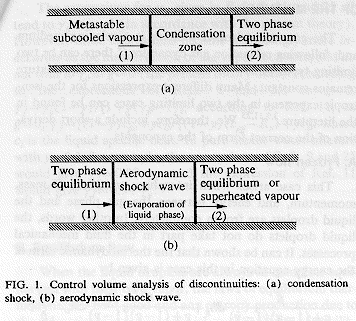 |
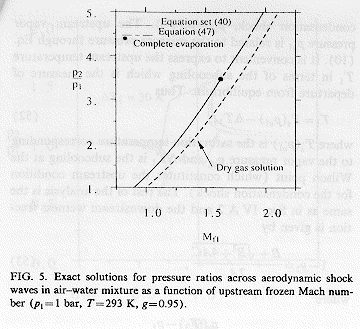 |
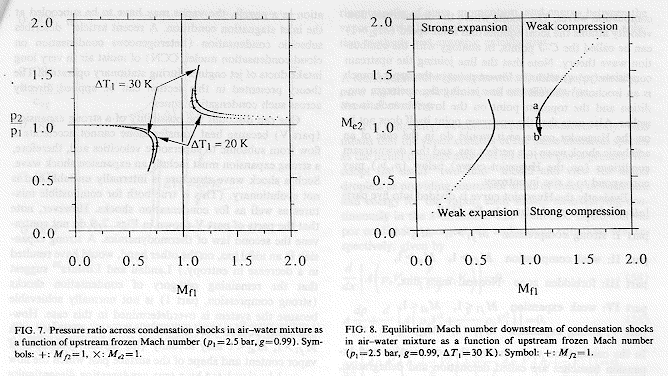 |
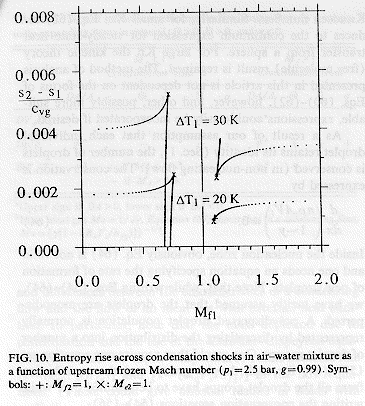 |
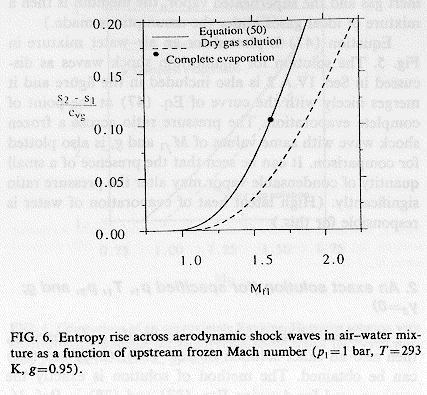 |
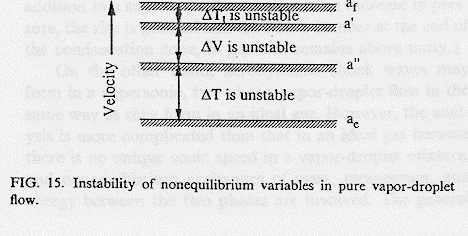 |
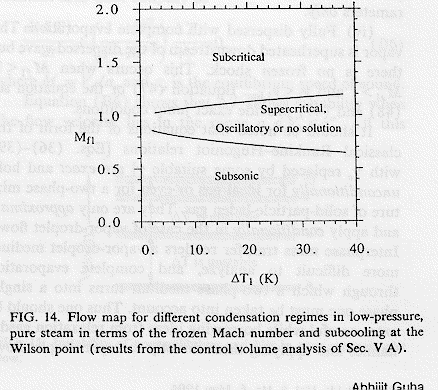 |
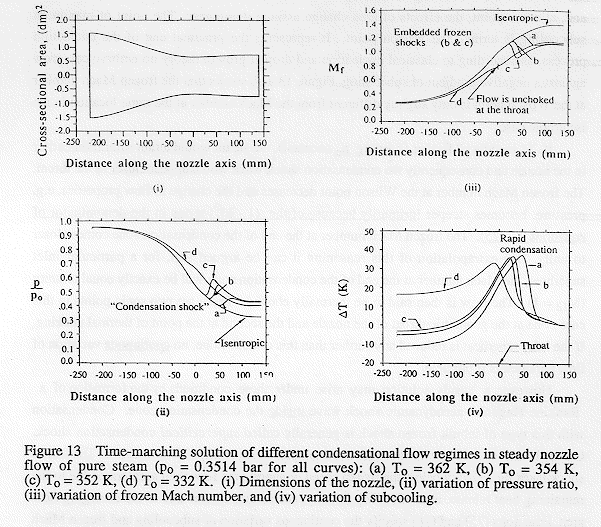 |
 |
|
|
|